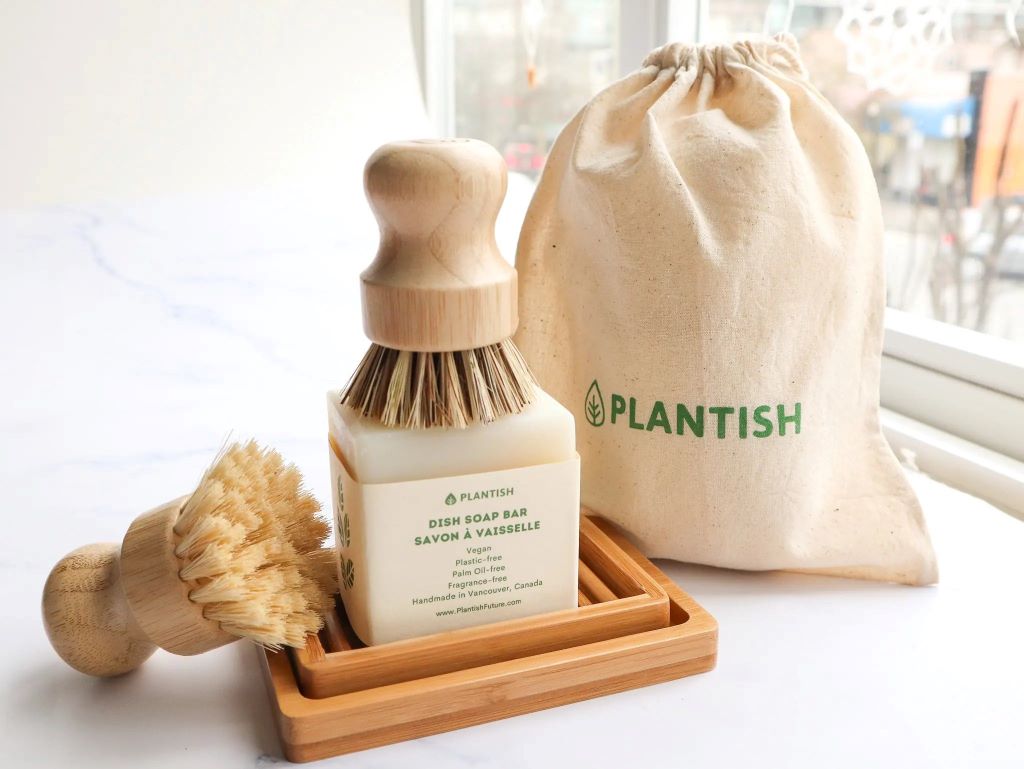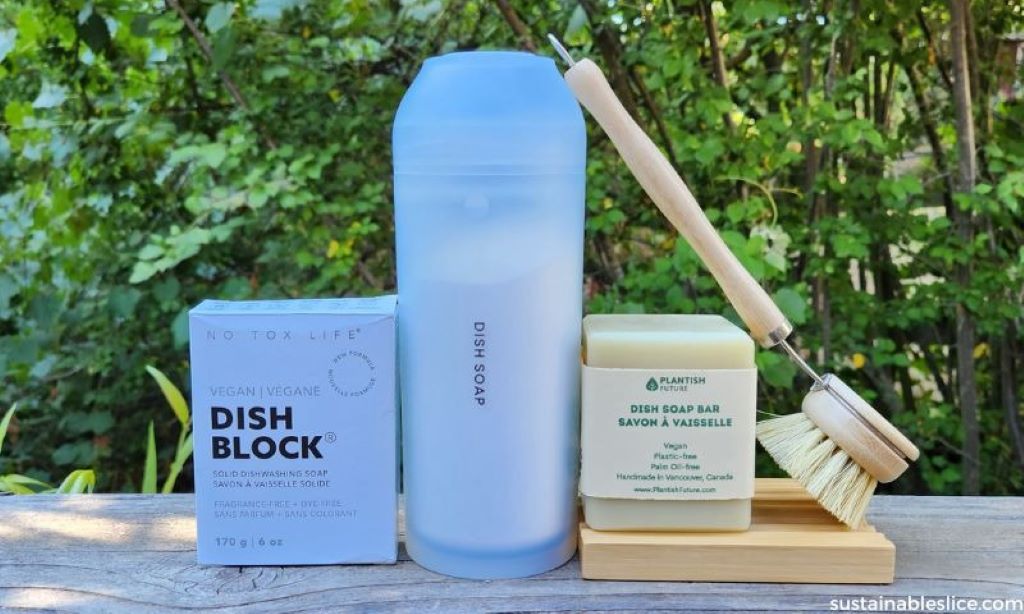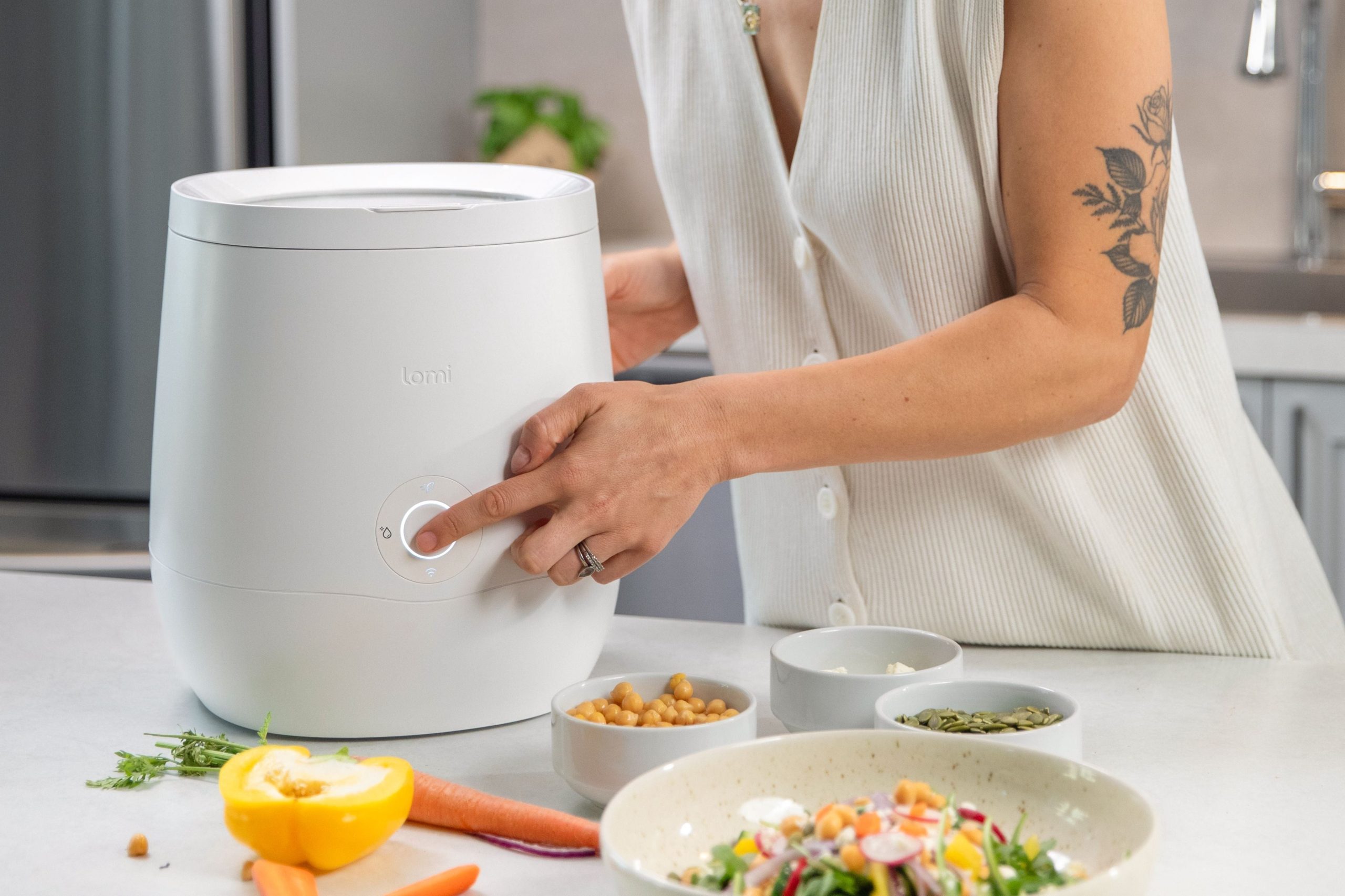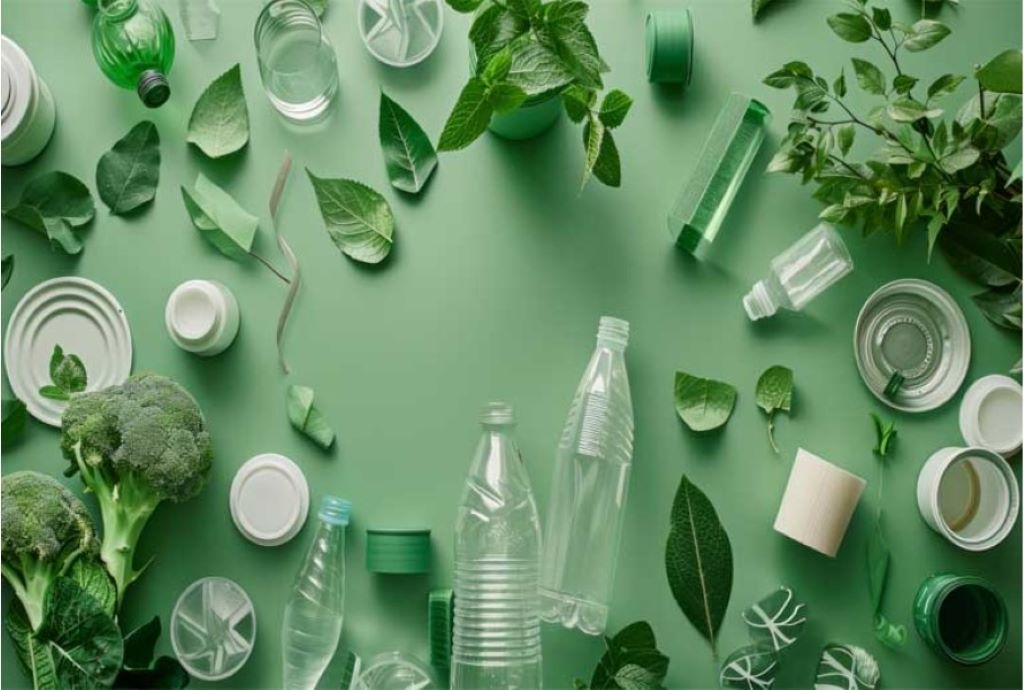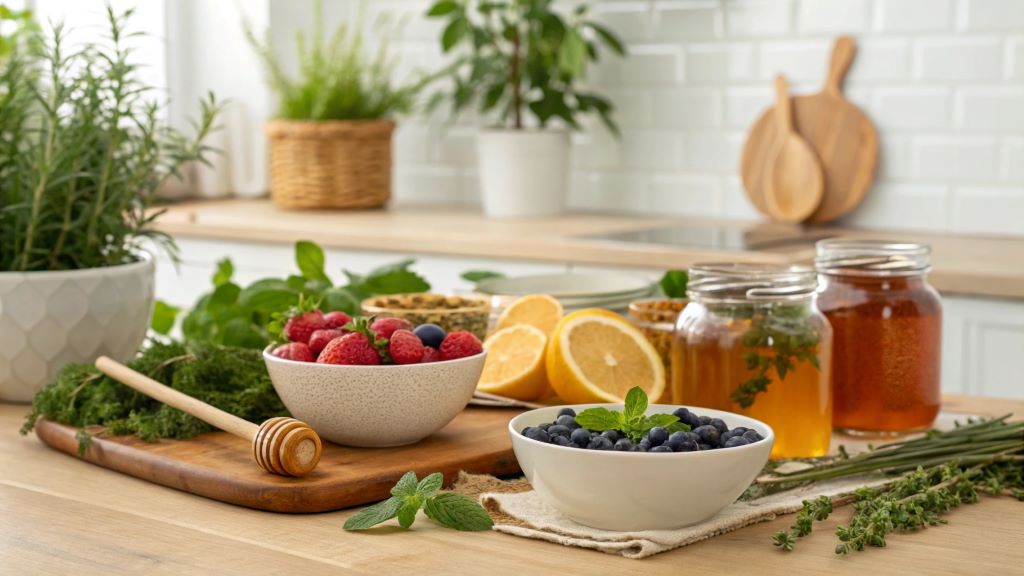Plastic bottles clutter landfills. Harmful chemicals pollute waterways. Can zero-waste dish soap save the planet? This sustainable cleaning solution promises eco-friendly dishwashing. But does it deliver? Let’s explore its environmental impact, benefits, and challenges. Discover why zero-waste dish soap matters for your kitchen and the Earth.
What Is Zero-Waste Dish Soap?
Zero-waste dish soap minimizes environmental harm. It avoids plastic packaging and toxic chemicals. Traditional dish soaps often come in single-use plastic bottles. These contribute to 11 million metric tons of ocean plastic yearly. Zero-waste alternatives use biodegradable ingredients and compostable packaging. They reduce waste and protect ecosystems. Common forms include solid bars, powders, and concentrates. Brands like Meliora, Blueland, and Etee lead the charge. Their products align with sustainable living goals.
Why Traditional Dish Soap Harms the Environment
Traditional dish soaps pose serious issues. Most contain synthetic surfactants like sodium lauryl sulfate (SLS). SLS can irritate skin and harm aquatic life. Phosphates in some soaps cause algal blooms, depleting oxygen in water. Plastic bottles add to landfill waste. Only 9% of plastic globally gets recycled. Manufacturing these soaps often relies on petroleum, a non-renewable resource. These factors make conventional dishwashing a hidden environmental threat.
Benefits of Zero-Waste Dish Soap
Zero-waste dish soap offers clear advantages. Let’s break them down.
Eco-Friendly Ingredients
Zero-waste soaps use plant-based ingredients. Coconut oil, olive oil, and castile soap are common. These are biodegradable and non-toxic. They avoid harmful chemicals like parabens, phthalates, and synthetic fragrances. This protects waterways and marine life. For example, Meliora’s dish soap bar is MADE SAFE® certified and vegan. It contains no palm oil, reducing deforestation risks.
Plastic-Free Packaging
Packaging is a gameresponsibility. Zero-waste dish soaps come in paper, cardboard, or compostable materials. Etee uses beeswax pods that you can repurpose into candles. Blueland’s powder comes in recyclable sachets. This eliminates single-use plastic waste. Customers of these brands have saved over 100 million plastic items from landfills.
Long-Lasting and Cost-Effective
Solid dish soap bars last longer than liquid soaps. A single bar can clean dishes for months. This reduces waste and saves money. Users report Meliora’s dish block lasting over a month with minimal wear. You use only what you need, avoiding overuse.
Reduced Carbon Footprint
Zero-waste soaps require less water in production. Liquid soaps are often 70% water, increasing transport emissions. Solid bars and powders are lightweight and compact. This lowers the carbon footprint of shipping. Brands like Blueland are Climate Neutral Certified, offsetting their emissions.
How Zero-Waste Dish Soap Works
Using zero-waste dish soap is simple. For bars, wet a sponge or brush and rub it on the soap. This creates a rich lather for scrubbing dishes. Powders, like Blueland’s, dissolve in water on a sponge. Concentrates, such as Etee’s pods, mix with water in a reusable bottle. These methods clean grease effectively without harmful residues. Users love the sudsy foam and spot-free results.
Challenges of Zero-Waste Dish Soap
Zero-waste dish soap isn’t perfect. Some challenges exist.
Learning Curve
Powdered soaps require new techniques. You may need to experiment to get the right lather. Some users find bars slippery at first. Practice makes it easier. Guides on sites like Going Zero Waste offer tips for beginners.
Higher Initial Cost
Eco-friendly soaps can cost more upfront. A Meliora dish block might be $10–$15. However, long-term savings balance this out. Refill systems, like Unscented Co.’s, reduce costs over time. Compare this to $3–$5 for conventional liquid soaps that don’t last as long.
Limited Availability
Zero-waste soaps aren’t in every store. You may need to order online. Brands like Seventh Generation are more accessible, but smaller companies ship directly. This can increase shipping emissions unless brands use carbon-neutral delivery.
Environmental Impact of Zero-Waste Dish Soap
Zero-waste dish soap significantly reduces harm. Biodegradable ingredients break down naturally. They don’t linger in waterways like synthetic chemicals. Plastic-free packaging cuts landfill waste. For instance, Blueland’s refill system saves 30 plastic bottles annually per user. However, some soaps use palm oil, which can drive deforestation if not sustainably sourced. Look for palm oil-free options like No Tox Life’s dish block. Certifications like Leaping Bunny and EPA Safer Choice ensure ethical standards.
Comparing Zero-Waste Dish Soap to Traditional Options
Traditional soaps like Dawn excel at grease-cutting. But they rely on petroleum-based ingredients. Zero-waste soaps match their cleaning power using natural surfactants. A 2025 test by TheRoundup found eco-friendly soaps tackled baked-on food well. However, some brands, like Puracy, are less effective without SLS. Choose products with EWG “A” ratings for safety and efficacy. Zero-waste options also avoid animal testing, unlike many mainstream brands.
DIY Zero-Waste Dish Soap Recipes
Want to make your own? Try these recipes for eco-friendly dish soap.
Bulk Liquid Dish Soap
You’ll need:
- 4 oz unscented castile soap bar
- 1 tbsp washing soda
- 2 tbsp coarse salt
- 1 gallon water
- Optional: 16 drops lemon essential oil
Steps:
- Grate the castile soap.
- Mix with washing soda, salt, and water.
- Boil until dissolved.
- Cool and blend if it gels.
- Store in a reusable bottle.
Small-Batch Dish Soap
You’ll need:
- 1 oz castile soap
- 1 tsp washing soda
- 1 tbsp salt
- 2 cups water
- Optional: 8 drops essential oil
Steps:
- Grate soap and mix with ingredients.
- Heat until smooth.
- Store in a glass jar.
- Shake before use.
These recipes use biodegradable ingredients. They’re cost-effective and customizable.
How to Choose the Best Zero-Waste Dish Soap
Not all eco-friendly soaps are equal. Follow these tips:
- Check Ingredients: Opt for plant-based, biodegradable formulas. Avoid SLS, phosphates, and parabens.
- Look for Certifications: Seek EcoCert, USDA Organic, or Leaping Bunny labels.
- Prioritize Packaging: Choose plastic-free or refillable options.
- Support Ethical Brands: Pick companies with renewable energy or B Corp status.
- Read Reviews: Sites like Sustainable Jungle rate brands on 22 sustainability factors.
Brands like Plantish Future and Savonnerie des Diligences excel in these areas. Their soaps are effective and ethically sourced.
Top Zero-Waste Dish Soap Brands
Here are some standout brands:
- Meliora: Vegan, palm oil-free dish block in recyclable paperboard. EWG “A” rated.
- Blueland: Powder soap with reusable silicone shaker. Saves 30 plastic bottles yearly.
- Etee: Compostable beeswax pods. 100% plant-based and plastic-free.
- No Tox Life: Palm oil-free dish block. Rich lather for tough grease.
- Unscented Co.: Refillable, vegan soaps. B Corp certified with local sourcing.
These brands balance efficacy and sustainability. They’re top picks for eco-conscious homes.
Real-World Impact of Switching
Switching to zero-waste dish soap makes a difference. One household can save dozens of plastic bottles yearly. Biodegradable ingredients reduce waterway pollution. For example, phosphates in traditional soaps cause algal blooms, harming fish. Zero-waste soaps avoid this. Users report cleaner dishes without toxic residues. Small changes add up. If every U.S. household switched, billions of plastic bottles could stay out of landfills.
Tips for Using Zero-Waste Dish Soap Effectively
Maximize your eco-friendly dishwashing:
- Scrape Dishes First: Remove food to reduce soap use.
- Use Warm Water: It boosts lather and grease-cutting.
- Pair with Eco-Tools: Try bamboo brushes or compostable sponges.
- Store Properly: Keep bars dry to extend life.
- Experiment: Adjust soap amount for best results.
These tips ensure sparkling dishes and minimal waste. Sites like Greenify Me offer detailed guides.
The Bigger Picture: Zero-Waste Living
Zero-waste dish soap is a step toward sustainable living. It aligns with reducing, reusing, and recycling. Pair it with eco-friendly dinnerware and cleaning tools. Blogs like Bigger Better Days emphasize small swaps spark bigger changes. You’ll rethink other plastic-heavy products in your home. This mindset fosters a greener lifestyle.
Addressing Common Concerns
Some worry zero-waste soaps don’t clean well. Tests show brands like Nellie’s Dish Butter rival conventional soaps. Others fear high costs. While pricier upfront, long-lasting bars save money over time. Availability is improving as demand grows. Online stores like EarthHero make access easier with carbon-neutral shipping.
FAQs
Is Zero-Waste Dish Soap Effective for Tough Grease?
Yes. Brands like No Tox Life create rich lather. They cut through grease effectively. Pair with a bamboo brush for best results.
Are Zero-Waste Dish Soaps Safe for Sensitive Skin?
Most are gentle. They use plant-based ingredients like coconut oil. Avoid SLS and parabens. Check for aloe vera for extra skin protection.
How Long Does a Dish Soap Bar Last?
A single bar lasts months. Meliora’s block shows minimal wear after a month. Use only what you need per wash.
Can I Use Zero-Waste Dish Soap in a Dishwasher?
Some brands offer dishwasher-safe options. Blueland’s tablets are plastic-free and effective. Check product labels for compatibility.
Where Can I Buy Zero-Waste Dish Soap?
Online stores like EarthHero and ZeroWasteStore.com carry them. Some local co-ops or farmers’ markets offer bulk options. Check brand websites for direct orders.
Conclusion
Zero-waste dish soap is environmentally friendly. It cuts plastic waste and toxic chemicals. Biodegradable ingredients protect waterways. Brands like Meliora and Blueland lead with ethical practices. Switching is a small step with big impact. Try a dish soap bar or powder today. Share your favorite eco-friendly dish soap in the comments. Let’s clean greener together!
Start your zero-waste journey now. Pick a sustainable dish soap brand. Try a DIY recipe for fun. Share your experience below to inspire others!
References:
- Sustainable Jungle: https://www.sustainablejungle.com/zero-waste-dish-soaps
- Going Zero Waste: https://www.goingzerowaste.com/eco-friendly-dishwashing
- Sustainably Chic: https://www.sustainably-chic.com/non-toxic-dish-soap
- EcoRoots: https://ecoroots.us/zero-waste-dish-soap
- TheRoundup: https://theroundup.org/eco-friendly-dish-soaps
- NY Mag: https://nymag.com/best-natural-dish-soaps
- EarthHero: https://earthhero.com/best-eco-friendly-dish-soaps
- Reddit r/ZeroWaste: https://www.reddit.com/r/ZeroWaste
- TheGoodLifeDesigns: https://thegoodlifedesigns.com/diy-zero-waste-dish-soap
- ZeroWasteStore: https://zerowastestore.com/zero-waste-dish-soap
- ImPlasticFree: https://www.implasticfree.com/plastic-free-dish-soap
- GreenHive: https://www.greenhive.io/zero-waste-dish-soaps
- Greenify Me: https://www.greenify-me.com/zero-waste-dishwasher-detergent
- Zero Waste MVMT: https://www.zerowastemvmt.com/dish-soap-bars
- NCBI: https://www.ncbi.nlm.nih.gov/pmc/articles/PMC8276143
- Greenwashing Index: https://www.greenwashingindex.com/zero-waste-dish-soap
- The Eco Hub: https://theecohub.com/zero-waste-dish-soap-brands
Read More:

